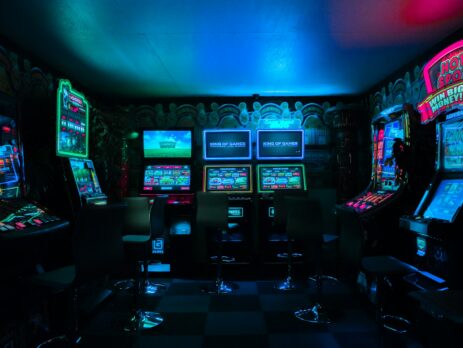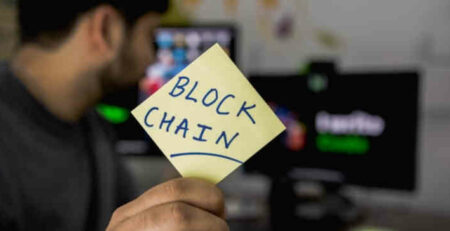Gamify Your Team: Hiring Strategies for Game Developers
The gaming industry is booming, and with this growth comes the challenge of finding and retaining top talent in game development. Innovative hiring strategies are essential for companies looking to stay competitive in this dynamic field. One such strategy is gamification, which involves applying game-design elements in non-game contexts, such as recruitment and team building. This approach not only makes the hiring process enjoyable but also engages potential candidates in a unique way that traditional methods may not.
For a creative staffing agency, understanding the nuances of gamification and how it can be integrated into hiring strategies is crucial. This involves more than just making a job application fun; it’s about creating an immersive experience that showcases a candidate’s skills and fit for the team. By doing so, companies can attract passionate developers who are more likely to be committed and motivated.
Moreover, the use of gamification in recruitment allows companies to assess important skills such as problem-solving, creativity, and teamwork in real-time. This method provides a clearer picture of how a candidate will perform in actual work scenarios, which is particularly important in the game development industry where these skills are paramount.
However, implementing gamification effectively requires careful planning and execution. It’s not just about adding points and leaderboards to an application process. Companies must design recruitment challenges that are relevant to the job and reflective of the company’s culture. This alignment ensures that the gamification strategy not only attracts candidates but also aligns them with the company’s values and work environment.
Another aspect to consider is the technology and tools used for gamifying the hiring process. From virtual reality (VR) and augmented reality (AR) to more simple web-based quizzes and challenges, the choice of technology can significantly impact the effectiveness of the strategy. It’s important for companies to choose tools that enhance the experience without overshadowing the core objective of finding the right talent.
Furthermore, gamification can also play a role in employee retention and team building post-hire. By continuing to use game elements in training and development, companies can keep their teams engaged and motivated. This is especially important in creative industries like game development, where innovation and continuous learning are key.
It’s also crucial for companies to stay updated with the latest trends and technologies in both gaming and HR to keep their gamification strategies fresh and effective. This might involve attending industry conferences, participating in webinars, or collaborating with specialists in the field.
For those looking to implement or improve their gamification strategies, working with a creative staffing agency that understands the gaming industry can be immensely beneficial. These agencies can provide not only the talent but also the insights and tools necessary to design effective gamification-based hiring processes.
In conclusion, as the gaming industry continues to evolve, so too must the strategies used to hire game developers. Gamification offers a promising approach by making the recruitment process engaging and by providing valuable insights into candidates’ abilities. With the right implementation, it can help companies build strong, creative teams that are equipped to face the challenges of the industry.
Most Asked Questions About Gamifying Hiring Strategies for Game Developers
- What are the key elements of gamification in hiring?
- How can gamification improve the quality of hires in game development?
- What technologies are best for implementing gamification in recruitment?
- Can gamification in hiring help in assessing team fit?
- How does gamification impact the candidate experience?
- What are the challenges of using gamification in recruitment?
- How can companies measure the success of gamification in their hiring process?
What are the key elements of gamification in hiring?
Implementing gamification in hiring involves several key elements that ensure the process is both effective and engaging. The first element is the design of the game mechanics themselves, which should be closely aligned with the actual job requirements. This might include problem-solving tasks, teamwork challenges, or creativity exercises that mirror real job scenarios.
Another crucial element is the use of technology. Whether it’s VR, AR, or simple web-based applications, the technology should facilitate a seamless and immersive experience. It’s important that the technology does not become a barrier to participation but rather enhances the gamification process.
Reward systems are also integral to gamification. These can range from points and badges to more tangible rewards like job interviews or career development opportunities. Rewards should be designed to motivate candidates and encourage them to engage fully with the process.
Feedback mechanisms are essential as well. Candidates should be able to receive immediate feedback on their performance in the gamified tasks. This not only helps them understand where they stand but also mirrors the instant feedback loops that are common in games.
Finally, the narrative or story behind the gamification process can greatly enhance engagement. By creating a storyline that candidates can relate to, companies can make the recruitment process more relatable and memorable.
These elements, when combined effectively, can transform the hiring process into an engaging and insightful experience, attracting not just any talent, but the right talent for the game development industry.

How can gamification improve the quality of hires in game development?
Gamification can significantly enhance the quality of hires in the game development industry by allowing companies to assess not only the technical skills of candidates but also their problem-solving abilities, creativity, and teamwork skills. These are crucial in a field where innovation and collaboration are key.
Through gamified assessments, companies can observe candidates in action, rather than relying solely on resumes or traditional interviews. This hands-on approach helps in identifying individuals who not only have the right skills but also the right mindset and approach to challenges.
Moreover, gamification makes the hiring process more engaging, attracting a broader pool of candidates. This increased engagement often leads to a higher completion rate of application processes, providing HR teams with a larger, more diverse set of applicants to choose from.
Additionally, the data collected during gamified assessments can provide deeper insights into candidate behaviors and skills, enabling more informed hiring decisions. This data-driven approach helps in reducing the subjectivity of hiring decisions, making the process fairer and more transparent.
Furthermore, by aligning the gamification elements with the company’s culture and values, organizations can attract candidates who are a better cultural fit. This alignment helps in reducing turnover and improving employee satisfaction in the long run.
Overall, gamification in hiring not only improves the quality of hires by assessing a wide range of skills and behaviors but also enhances the efficiency of the recruitment process, making it a valuable strategy in the competitive game development industry.
What technologies are best for implementing gamification in recruitment?
The choice of technology is crucial in implementing gamification in recruitment effectively. Virtual Reality (VR) and Augmented Reality (AR) are at the forefront, providing immersive experiences that can simulate real job tasks and environments. These technologies allow candidates to demonstrate their skills in a controlled, yet realistic setting.
Web-based platforms are also widely used due to their accessibility and ease of integration with other HR systems. These platforms can host a variety of gamified elements such as quizzes, puzzles, and interactive scenarios that are easy to scale and can reach a wide audience.
Mobile applications are another effective technology for gamification. With the increasing use of smartphones, mobile apps can make the recruitment process more accessible and convenient, allowing candidates to participate from anywhere at any time.
Game engines such as Unity or Unreal Engine can also be used to create custom gamified experiences. These tools offer robust capabilities for creating detailed, interactive environments that can closely mimic the actual work setting in game development.
Artificial Intelligence (AI) and machine learning can further enhance gamification by providing personalized experiences and insights. AI can analyze candidate responses and behaviors to tailor challenges and feedback, making the experience more engaging and informative.
Overall, the best technologies for implementing gamification in recruitment are those that enhance the user experience, provide valuable insights, and align with the company’s technical capabilities and goals. Choosing the right technology will depend on the specific needs and resources of the company as well as the nature of the job being gamified.
Can gamification in hiring help in assessing team fit?
Gamification can be an effective tool in assessing how well a candidate might fit into an existing team. By incorporating scenarios that require collaborative problem-solving or project management, companies can observe firsthand how candidates interact with others, handle conflict, and contribute to team goals.
This approach is particularly useful in the game development industry where teamwork and communication are crucial. Gamified assessments can simulate the collaborative environment of game development projects, giving insights into a candidate’s ability to work effectively with others.
Moreover, gamification can help in assessing cultural fit. By designing games that reflect the company’s values and culture, employers can gauge whether candidates resonate with their core principles and working style.
Additionally, the interactive nature of gamification allows candidates to demonstrate their soft skills in a more natural and engaging way than traditional interviews. This can include leadership skills, adaptability, and emotional intelligence, which are often hard to gauge through CVs or conventional assessment methods.
Furthermore, the data collected during gamified assessments can provide objective metrics on team dynamics and individual contributions, which can be analyzed to predict how well a candidate will integrate with the team.
In conclusion, gamification can significantly aid in assessing team fit by providing a dynamic and interactive platform to evaluate essential teamwork and cultural fit qualities in candidates.
How does gamification impact the candidate experience?
Gamification can greatly enhance the candidate experience by making the recruitment process more engaging and less stressful. The interactive and fun nature of gamified assessments can reduce the anxiety typically associated with job applications and interviews, allowing candidates to perform at their best.
Additionally, gamification provides immediate feedback, which is highly valued by candidates. This feedback can help them understand their strengths and areas for improvement, regardless of whether they get the job or not.
The use of gamification also demonstrates a company’s commitment to innovation and creativity, traits that are especially attractive to top talent in fields like game development. This can enhance the employer brand and attract more applicants.
Moreover, by providing a realistic preview of job roles and the company culture, gamification helps candidates make informed decisions about their fit and interest in the position. This transparency can lead to better job satisfaction and lower turnover rates for those hired.
Overall, gamification positively impacts the candidate experience by making the recruitment process more interactive, informative, and less intimidating, thereby attracting and retaining high-quality candidates.
What are the challenges of using gamification in recruitment?
While gamification in recruitment has many benefits, it also comes with challenges. One of the main issues is the complexity and cost of developing and implementing gamified elements, especially for small to medium-sized enterprises.
Another challenge is ensuring that the gamified elements are relevant and accurately reflect the skills and attributes required for the job. There is a risk that candidates might focus more on winning the game rather than demonstrating job-relevant skills.
There is also the potential for bias in gamified assessments. Designers of the gamification elements must ensure that they are accessible and fair to all candidates, regardless of their gaming experience or familiarity with digital platforms.
Furthermore, the data collected through gamification needs to be handled carefully to ensure privacy and compliance with data protection regulations. This adds another layer of complexity to the implementation of gamification in recruitment.
Despite these challenges, with careful planning and execution, the benefits of gamification in recruitment can far outweigh the difficulties, making it a valuable strategy for attracting and assessing candidates.

How can companies measure the success of gamification in their hiring process?
Measuring the success of gamification in hiring can be done through various metrics. One of the key indicators is the completion rate of gamified assessments. A high completion rate generally suggests that the gamification elements are engaging and not overly complicated.
Another metric is the quality of hires, which can be assessed through performance reviews and retention rates. If new hires who went through gamified assessments perform well and stay with the company longer, it can be seen as a sign of successful gamification.
Feedback from candidates about their experience can also provide valuable insights into the effectiveness of gamification. Positive feedback, especially regarding the fairness and enjoyability of the process, is a good indicator of success.
Additionally, the cost-effectiveness of gamified hiring processes can be evaluated by comparing the costs of gamification with the benefits, such as reduced time-to-hire and lower turnover rates.
Overall, a combination of quantitative and qualitative data can help companies measure the success of gamification in their hiring processes, ensuring that they are achieving their desired outcomes.
Conclusion
In conclusion, gamification in hiring is a powerful strategy that can transform the recruitment process for game developers. By incorporating game elements into hiring, companies can not only make the process more engaging but also gain deeper insights into candidates’ skills and fit for the team.
While there are challenges to implementing gamification, such as the cost and complexity of development, the potential benefits in terms of improved candidate quality and enhanced candidate experience are significant.
For companies looking to stay competitive in the fast-paced game development industry, embracing gamification in hiring could be a key differentiator. It not only attracts top talent but also aligns them with the company’s culture and values, leading to better team dynamics and retention rates.Learn more about effective team management strategies.
As the industry continues to evolve, staying updated on the latest trends and technologies in gamification will be crucial. Companies should consider partnering with a creative staffing agency that specializes in the gaming industry to ensure that their gamification strategies are effective and innovative.
Ultimately, the successful integration of gamification into hiring processes requires a balance of creativity, strategic planning, and continuous evaluation. By focusing on these areas, companies can harness the full potential of gamification to build strong, creative teams that drive success in the game development industry.
In today’s competitive market, finding the right creative and marketing expert can be a challenge. But with icreatives, you’re in experienced hands. With 37 years in staffing and a track record of matching more than 10,000 employees to over 1,000 companies worldwide, we know how to connect you with the best. Plus, you only pay if you hire—there’s no risk, only results.
Ready to find your perfect creative or marketing expert? HIRE WITH ICREATIVES today!












